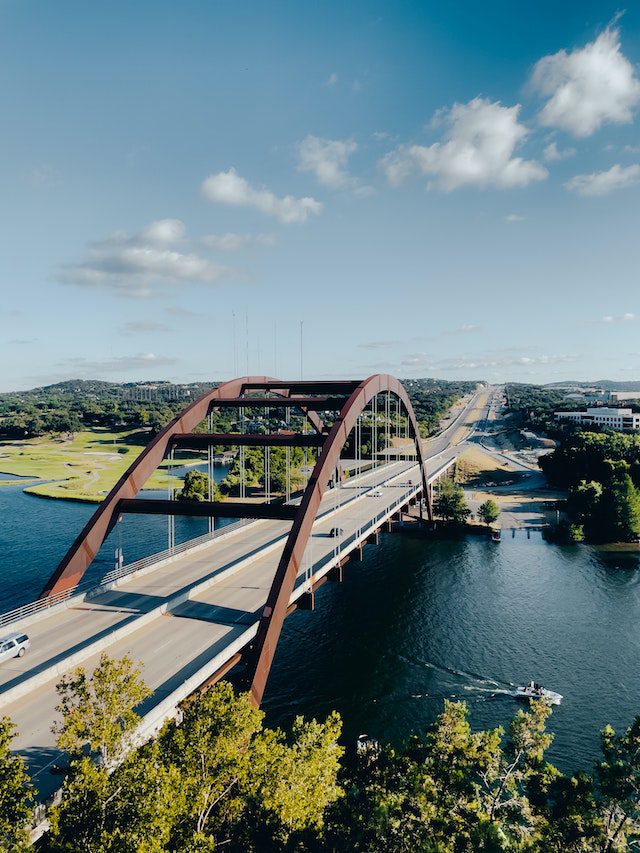AFIRE News
Rebecca Rockey, Deputy Chief Economist and Global Head of Forecasting at Cushman & Wakefield, discusses the CRE forecast for the year ahead.
This episode of the AFIRE Podcast features R. Byron Carlock Jr., former US real estate leader at PWC, discussing the most important investment to make in 2025.
Sabrina Unger, managing director of research and strategy for American Realty Advisors, discusses market opportunities (and nuances) for US multifamily in 2025.

Ground leases are an overlooked asset class among institutional investors due to their low absolute returns, limited market depth, and lack of institutional expertise.

Solar installations on commercial properties can provide additional revenue streams through solar roof leases and net metering or selling excess electricity back to the grid, which positively impact the financial performance of commercial properties—and move the needle on valuation.

The AFIRE Q1 2024 Investor Survey, underwritten by Holland Partner Group, provides key insights into the commercial real estate strategy of global investors.

For the fifth year in a row, AFIRE’s Summit Journal has been recognized with the Graphic Design USA Award and MarCom Award for association publications.

Within the evolving investment landscape, the emergence of OpCo-PropCo models present a compelling opportunity for institutional investors seeking to capture value in innovative, operationally complex real estate business models.

Several of the world’s major shipping choke points are challenged, and heightened geopolitical tensions threaten world trade. The potential result of these blockages could power a tailwind on inflation—and a drag on GDP.

Anticipated moves on interest rates at central banks could unlock capital and support the closing of a strong pipeline of infrastructure investments.

It has become almost cliché to call office “the new retail,” but even as office has been disrupted, comparisons between the two might be distracting from more clear-minded assessments.

The NCREIF Open End Diversified Core Index can offer a critical glimpse into which types of office properties—and which markets—have suffered the most in terms of leasing occupancy, and where the market might go next.

AI’s impact in real estate can be traced along two distinct verticals: In-Asset, where platforms enhance value through property performance, and Out-of-Asset, where platforms transform the workflows of the deal ecosystem.

Insatiable appetite for data throughout the APAC region is fuelling growth of this new economy asset class. And as demand for digital services continues to accelerate globally, the importance of the sector will grow in kind.

AFIRE is seeking proposals and article drafts for the next issue Summit Journal, to be released February 2025. Deadline: November 6, 2024.

In recent years, workforce and affordable rental housing in the US has emerged as a meaningful investment opportunity. But the US has a significant affordability challenge, which could potentially be alleviated through private sector strategies.
Rebecca Rockey, Deputy Chief Economist for Cushman & Wakefield, joins the AFIRE Podcast to discuss how cities can disrupt the “urban doom loop.”

Take the new AFIRE Fall 2024 Investor Survey. Eighteen questions, 5-10 minutes to complete, deadline: Thursday, October 31, 2024. Results published November 2024.

For the first time, core and non-core performance can be tracked at the property level, providing a pathway to new strategies.

Syndication continues to grow in popularity among lenders, which is also introducing a host of legal issues into the market. (Part one of a two-part series.)
Media Coverage

Deep-pocketed international investors rank Boston as tied for the second-most desirable U.S. region in 2022, according to a survey by the Association of Foreign Investors in Real Estate (AFIRE).

Favored Property Types Include Multifamily, Life Science and Industrial, According to Annual Survey

The survey shows U.S. CRE continues to be an attractive target for global investors. But they are switching up their strategies in response to post-pandemic trends.

Secondary and tertiary cities are poised to be foreign investor favorites over the next decade in the aftermath of the COVID-19 pandemic, as changing consumer preferences continue to influence how capital is deployed.

For thirty years, AFIRE (Association for International Real Estate Investors) has conducted an annual survey to understand the goals, challenges and long-term thinking of international investors in U.S. real estate. Show host Michael Bull interviews AFIRE CEO Gunnar Branson on the results and insights from this year’s survey.

AFIRE released its 2022 International Investor Survey Report, underwritten by CBRE and Holland Partner Group. Austin, Atlanta, and Boston emerge as the top three cities for planned global investment in 2022, according to the report.

Especially since the Centennial Olympic Games 25 years ago, Atlanta has fancied itself an international city and player on the global stage. A new survey suggests the world shares in that opinion, at least in terms of valuable real estate.

New research from the Association of Foreign Investors in Real Estate may show that global buyers with long-term goals still have an appetite for U.S. real estate.

“The No. 1 most significant finding was the overwhelming support for environmental, social, and governance criteria,” Branson says.

Earlier this year, the AFIRE International Investor Survey found that more than six in 10 respondents expect to increase their investment in tertiary cities in the next three to five years.

Strong growth prospects and less intense competition is leading cross-border investors to secondary and tertiary markets.

The Association of Foreign Investors in Real Estate (AFIRE) surveyed investors and found that many intend to increase investment volume in the U.S. this year.

The responses from our investors mirrored the results from a survey released in May 2021 by the Association of Foreign Investors in Real Estate (AFIRE) […]

For over 30 years, AFIRE has surveyed institutional investors from around the world The results from March’s survey are especially optimistic and very revealing.

During this week’s episode of Leading Voices in Real Estate, Gunnar Branson, CEO of AFIRE, speaks with Matt about current issues facing the CRE business, including his thoughts on what is driving foreign capital into US real estate right now as we are moving forward from the COVID crisis.

According to a recent article in the Austin Business Journal, The Association of Foreign Investors in Real Estate (AFIRE) ranked Austin as the top market in the U.S. for foreign investors in 2021.

For instance, in AFIRE’s, the Association of Foreign Investors in Real Estate 2021 survey, the percentage of investors expecting to put more money into US CRE was much larger than for Europe (17%), Asia-Pacific (9%), the UK (7%), Canada (5%), or Australia and New Zealand (3%).

Gunnar Branson, CEO of AFIRE, Association of Foreign Investors in Real Estate joins show host/investment sales broker Michael Bull, CCIM to discuss highlights from their annual survey/report, the 2021 AFIRE International Investor Survey Report.

In a recent poll published by AFIRE, overseas real estate investors preferred Dallas over almost every other US city to buy real estate in 2021; it lands on number 3.

AFIRE found Austin, Boston, and Dallas as the top U.S. cities for planned investment in 2021.
